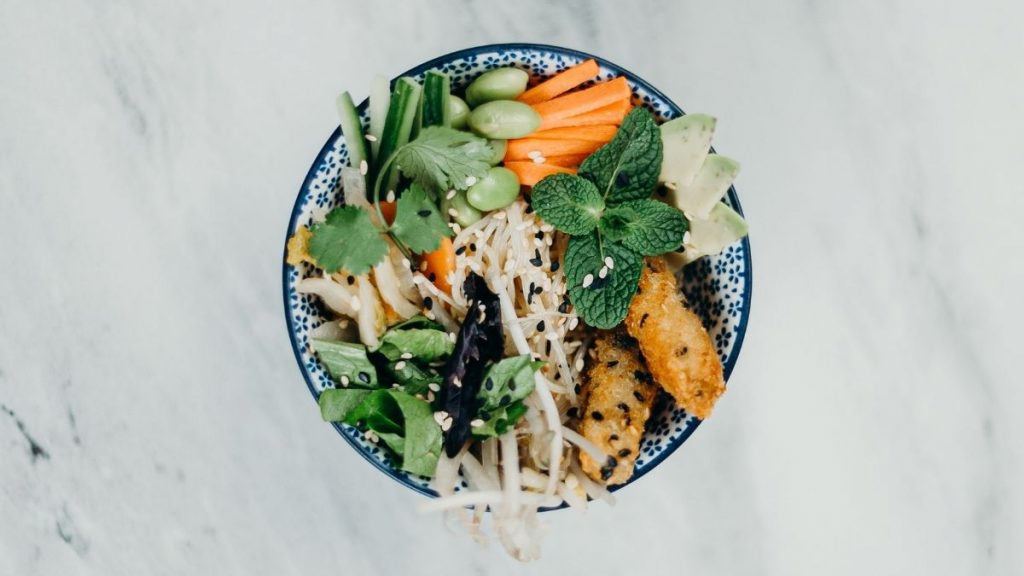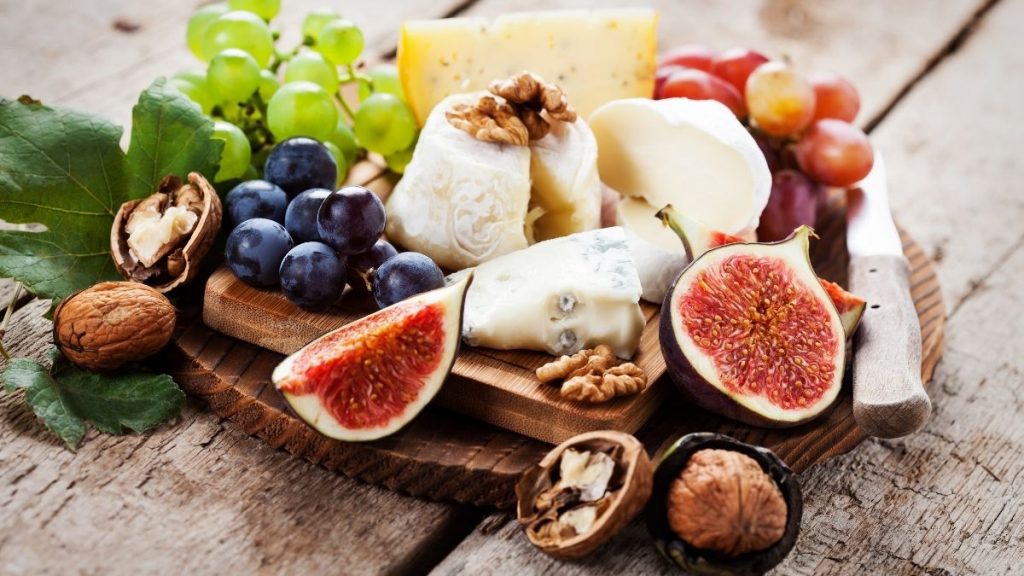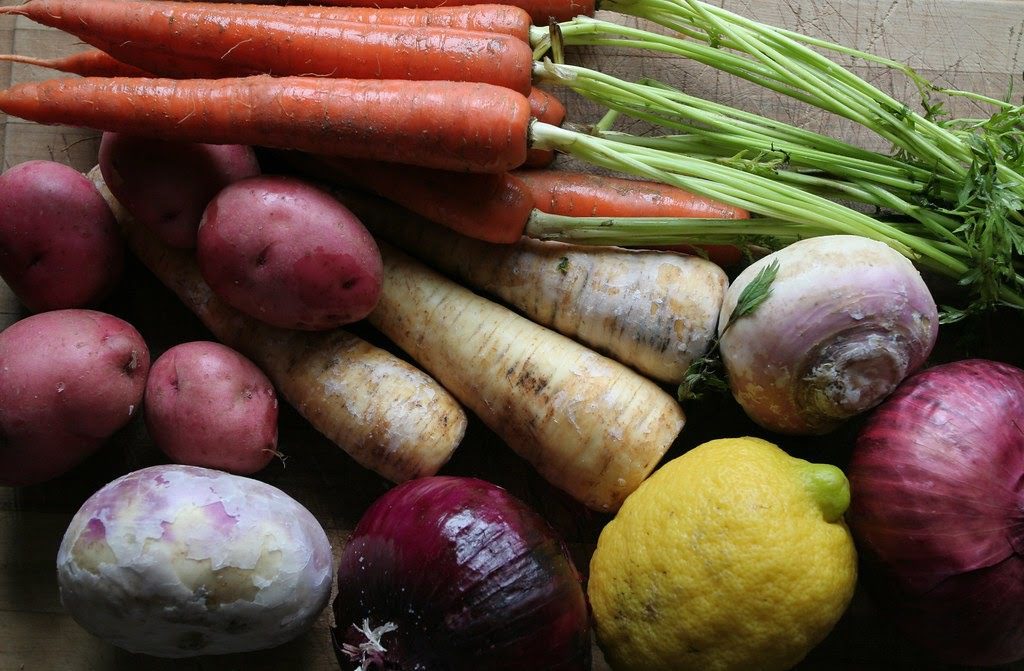
So you read my previous blog post about the best foods for back pain and were inspired to commit to a healthy, anti-inflammatory diet… and then the coronavirus hit.
A supermarket delivery slot is hard to get, restaurants are closed and the government is encouraging us all to shop as infrequently as possible – or not at all, if you have symptoms of COVID-19, have come into contact with the infection or fall into the vulnerable category. No one would argue with the fact that it is harder than ever to plan, buy and eat the kind of meals that contribute towards a healthy diet.
Read on for some tips on preparing nutritious, anti-inflammatory meals while you’re in self-isolation and some recipes that use non-perishable or long-lasting foods.
Quick Tips for Eating Healthily During COVID-19
- Reduce your calorie intake if you’re not as active as you were before
- Plan your meals and weekly shops so that shorter-life fruit and veg are eaten first and longer-life fruit and veg are saved for later
- Try not to rely on jars of sauce and starchy carbs that are high in salt and low in nutrients
- Try not to increase your alcohol consumption – no matter how tempting it is to give into self-isolation beers
- Ask others for help with shopping if you are quarantined so that you don’t miss out on fresh produce, especially if you are ill
How Can the Coronavirus Outbreak Affect Your Diet?
There are a number of adjustments that we have all had to make already in light of the coronavirus lockdown:
1. Many people will have to change their shopping habits
If, like me, you were used to food shopping little and often before the lockdown, you will have to change your shopping habits. In order to limit social contact, the government has said that one of the only reasons to leave the house during lockdown is “shopping for basic necessities, for example food and medicine, which must be as infrequent as possible”.
This may well mean that less produce goes into your shopping basket, as it won’t stay fresh for more than a few days. Here are a few sensible swaps that you might want to make at the supermarket to ensure that your food lasts longer.
The Longest Lasting Fruits and Vegetables
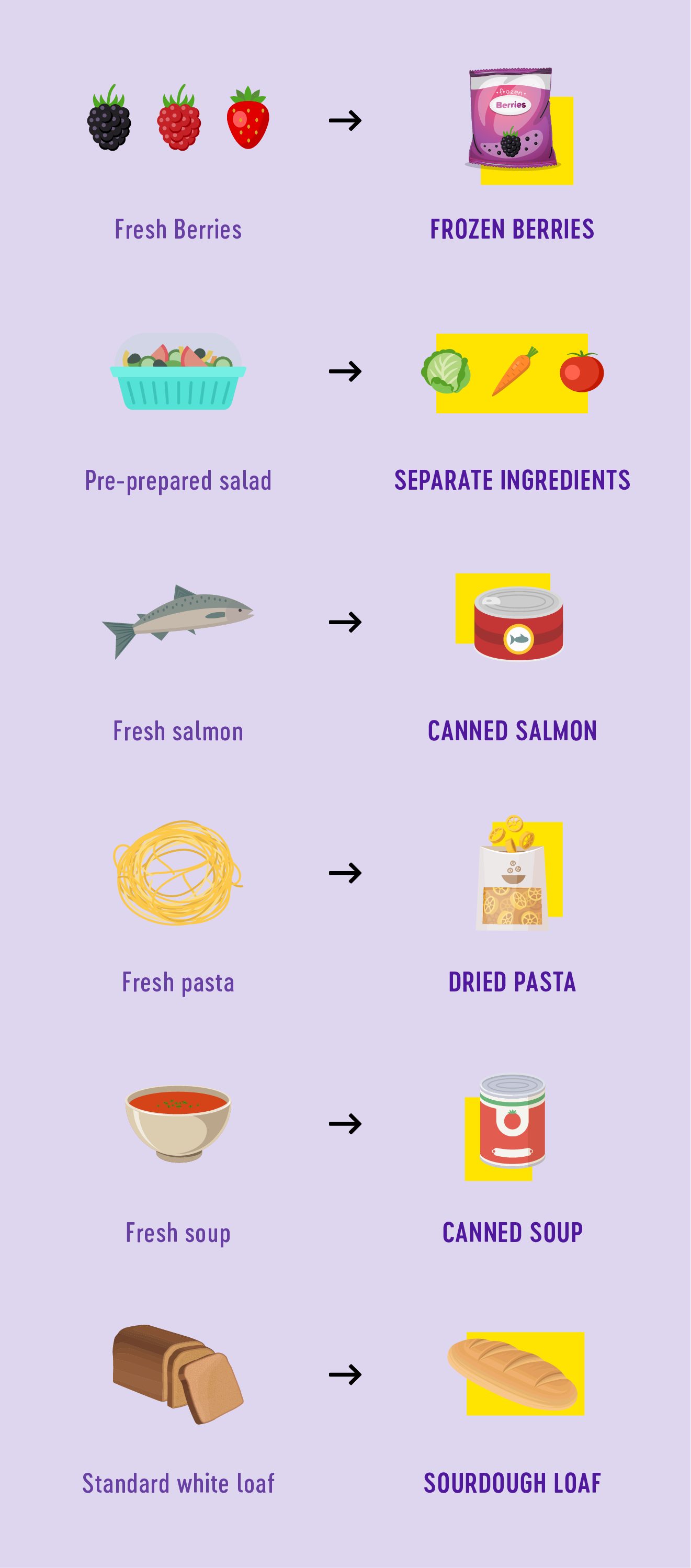
- A punnet of fresh raspberries, blueberries or blackberries will only last in the fridge for a few days before going mushy. A bag of frozen berries can last for up for 10 months and has almost the same nutritional benefit.
- If you usually buy pre-prepared salad boxes, think about swapping them for the separate salad ingredients. Salad vegetables – especially lettuce, cucumber and tomatoes – only last for a couple of days when sliced, but will survive longer when bought whole and kept in the fridge.
- While fresh salmon is a great centrepiece for meals, canned salmon has all the same health benefits, including omega-3 fatty acids and edible bones as a source of calcium.
- Try to get hold of a bag of dried pasta – especially of the wholegrain variety. It’s a good staple to keep in the cupboard as, unlike fresh pasta, it can be kept for years.
- Canned soups are an obvious choice when it comes to stocking your store cupboard, but they aren’t necessarily the healthiest option due to a high sodium and fat content. Try to find organic, low-fat, low-sodium canned soups that contain vegetables and legumes.
- If you’re looking for the longest lasting bread, try a sourdough loaf and store it at room temperature – don’t keep it in the fridge, as this causes bread structure to deteriorate more quickly.
2. Food shortages make it harder to get hold of certain ingredients
Supermarkets all over the country have been plagued by stock shortages since late February. This has extended to healthy foods that may have been an important part of your diet before the outbreak.
Some of the foods mentioned in our other nutritional blog posts that you might not be able to get hold of now include:
- Ginger, in any of its forms
- Fresh fish, as many supermarket fish counters have closed, although it is still possible to get fresh fish deliveries
- Tinned legumes, such as kidney beans, chickpeas and lentils
While stockpiling and panic buying has had an effect on the food supply over the past few weeks, there is now a new set of challenges to contend with. UK farms rely on seasonal labourers who come from overseas to pick crops; as a result of restrictions on travel, 70,000 workers are now needed to harvest fruit and veg in 2020 in order to feed the nation.
This food potentially going to waste, in combination with the fact that around 50% of the food on British shelves is imported from overseas, makes it likely that we will experience more food shortages in the coming months. While it’s important not to panic or contribute to scaremongering, we need to be aware that there may be restrictions on our existing eating habits later on in 2020.
If you or someone you know is currently looking for work and capable of manual labour, you can sign up for fruit and vegetable picking here. Please note that this is physical work and is not suitable for those with health conditions.
The Best Fruit and Vegetable Options During Lockdown
Here are a few of the longest lasting fruit and vegetables that you might want to consider purchasing during lockdown.
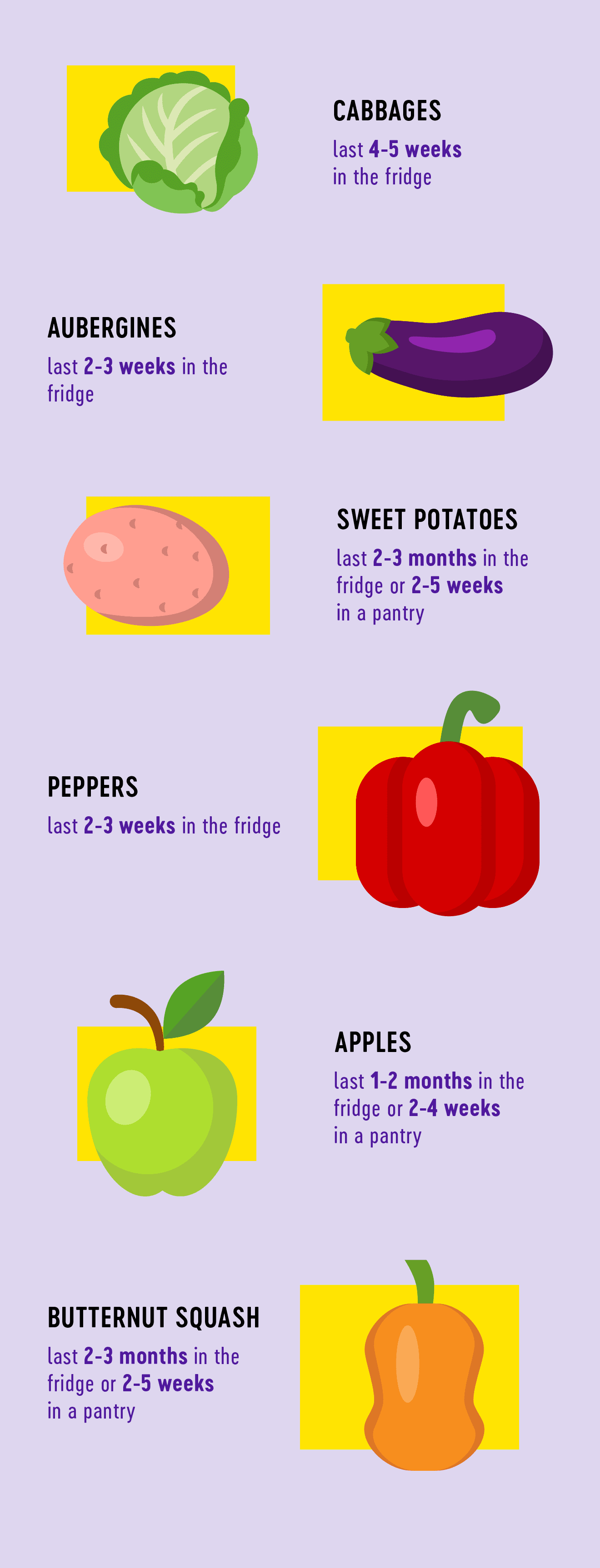
Cabbages – last 4-5 weeks in the fridge
Cabbage has a huge range of nutritional benefits – it is low in calories, high in fibre and rich in vitamin C and K, to name just a few – and it can last for over a month when stored properly.
Aubergines – last 2-3 weeks in the fridge
As you will have guessed from their brilliant colour, aubergines are rich in antioxidants, high in fibre and low in fat. They are great for bulking up curries and pasta sauces, especially when you can keep one in the fridge for weeks.
Sweet Potatoes – last 2-3 months in the fridge or 2-5 weeks in a pantry
Sweet potatoes have been lauded as a superfood for many years now – and for good reason. Considering the current health climate, it is worth knowing that orange-fleshed sweet potatoes are an excellent source of beta-carotene. This is turned into vitamin A when eaten, which is vital to maintaining a healthy immune system.
Peppers – last 2-3 weeks in the fridge
Peppers are fantastic for their versatility – in salads, stir fries, curries and more – but also for their longevity when compared to other stock vegetables. Plus peppers, especially the red varieties that have been on the vine for longer, have excellent nutritional value.
Apples – last 1-2 months in the fridge or 2-4 weeks in a pantry
We all know that “an apple a day keeps the doctor away”. Even better, they tend to go off less quickly than most other staple fruits, including bananas, grapes and oranges.
Butternut Squash – last 1-3 months in or out of the fridge
Like sweet potatoes, butternut squash contains essential nutrients that contribute towards bone health and a strong immune system, making it the perfect addition to a pain-reducing diet while in self-isolation. It’s also the longest lasting vegetable on this list and doesn’t need to take up valuable space in the fridge.
Recommended Recipes
Here are a few main-meal suggestions for a lockdown menu. They all contain foods that are both anti-inflammatory and long-lasting, so you don’t have to worry about the ingredients going off.
Roast summer vegetables and chickpeas – serves 4
This healthy summer stew from Barney Desmazery is a filling option for when the weather gets warmer. All of the veggie ingredients will last for up to 2 weeks in the fridge, and the canned tomatoes and chickpeas can come straight from the store cupboard.
Prep time: 20 mins; Cook time: 50 mins
Ingredients:
3 courgettes, thickly sliced
1 aubergine, cut into thick fingers
3 garlic cloves, chopped
2 red peppers, deseeded and chopped into chunks
2 large baking potatoes, peeled and cut into bite-sized chunks
1 onion, chopped
1 tbsp coriander seeds
4 tbsp olive oil
400g/14oz can chopped tomatoes
400g/14oz can chickpeas, rinsed and drained
Small bunch of coriander, roughly chopped
Method:
- Heat oven to 220C/200C fan/gas 7. Put all the vegetables into a large roasting tin and toss with the coriander seeds, most of the olive oil, salt and pepper. Spread everything out to a single layer, then roast for 45 mins, tossing once or twice until the vegetables are roasted and brown round the edges.
- Place the tin on a low heat, then add the tomatoes and chickpeas. Bring to a simmer and gently stir. Season to taste and drizzle with olive oil, then scatter on the coriander. Serve from the tin or pile into a serving dish. Eat with hunks of bread.

Smoky sweet potato and bean cakes with tangy cabbage slaw – serves 2
I suggest combining this veggie patty recipe by BBC Good Food with Jennifer Joyce’s cabbage slaw as a side. With sweet potatoes, kidney beans and both red and white cabbage, this is a poster dish for healthy and long-lasting food.
For the slaw
Prep time: 15 mins; Cook time: n/a
Ingredients:
250ml mayonnaise
Zest and juice 1 lemon
2 tbsp cider vinegar
2 tbsp wholegrain mustard
1 tsp celery salt
¼ head white cabbage, very thinly sliced
¼ head red cabbage, very thinly sliced
2 carrots, julienned
1 large red onion, diced
2 sticks celery, thinly sliced
Ingredients:
- Whisk together the mayonnaise, lemon zest and juice, vinegar, mustard and celery salt in a small bowl, then season generously.
- Add cabbage, carrots, onion and celery. Mix well and refrigerate. Can be made up to 1 day ahead.
For the sweet potato and bean cakes
Prep time: 15 mins; Cook time: 15-20 mins
Ingredients:
1 sweet potato (about 200g), cut into cubes
400g can red kidney beans, drained and rinsed
3 spring onions, finely sliced
Small bunch of coriander, chopped
1 tbsp chipotle paste
2 tbsp sunflower oil
Ingredients:
- Microwave the sweet potato on high for 6 mins until tender. Lightly mash the beans, then add the potatoes, 2 spring onions, coriander, chipotle paste and seasoning. Mash a little more until the potato is combined. Shape into 4 cakes.
- Heat the oil in a non-stick frying pan, then fry the bean cakes for 4-5 mins on each side.
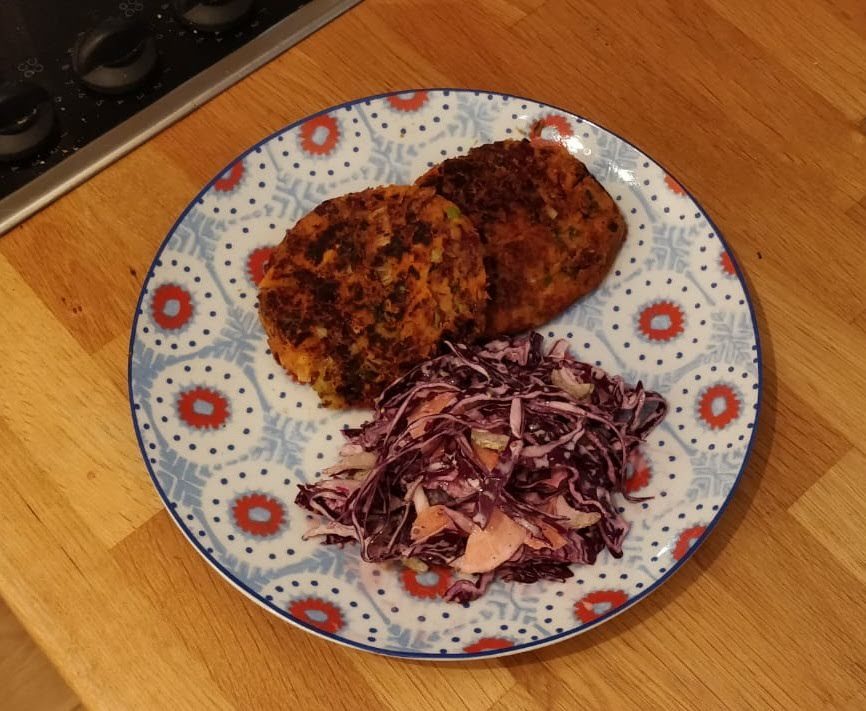
Stay Positive, Stay Healthy
These are trying times for everyone; it’s more important than ever that we look after ourselves and each other. If you have any healthy eating tips or recipes, we’d love to hear them – like our Facebook Page and send us a message.
For more coronavirus advice, take a look at our guide to looking after mental health while self-isolating and looking after your body if you’re working from home.


